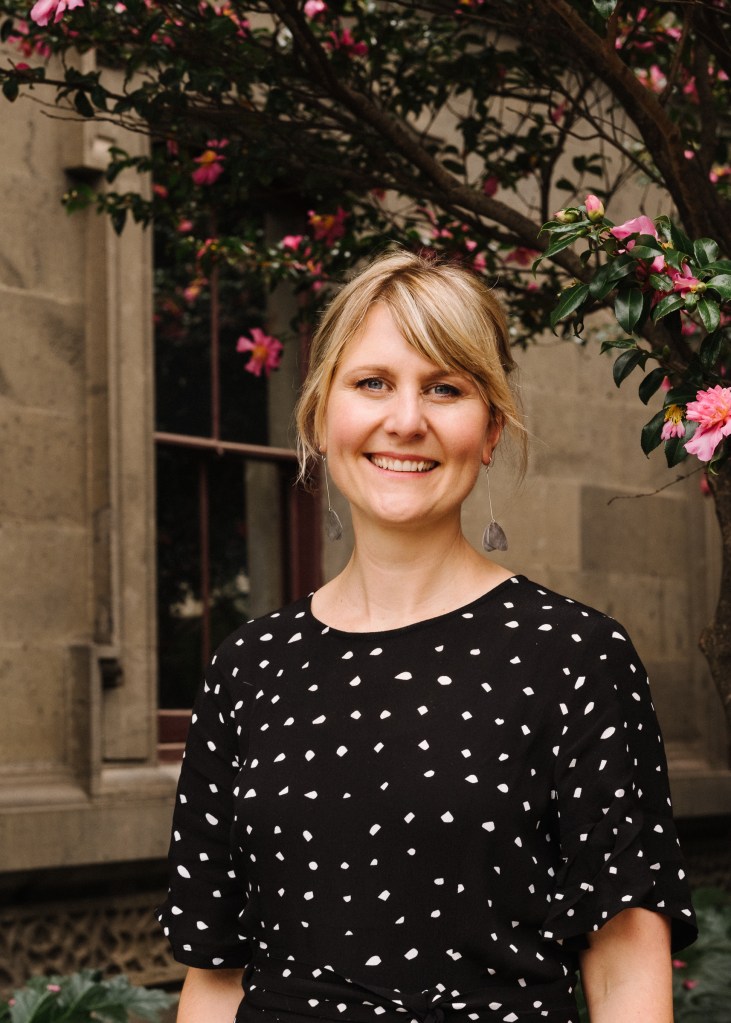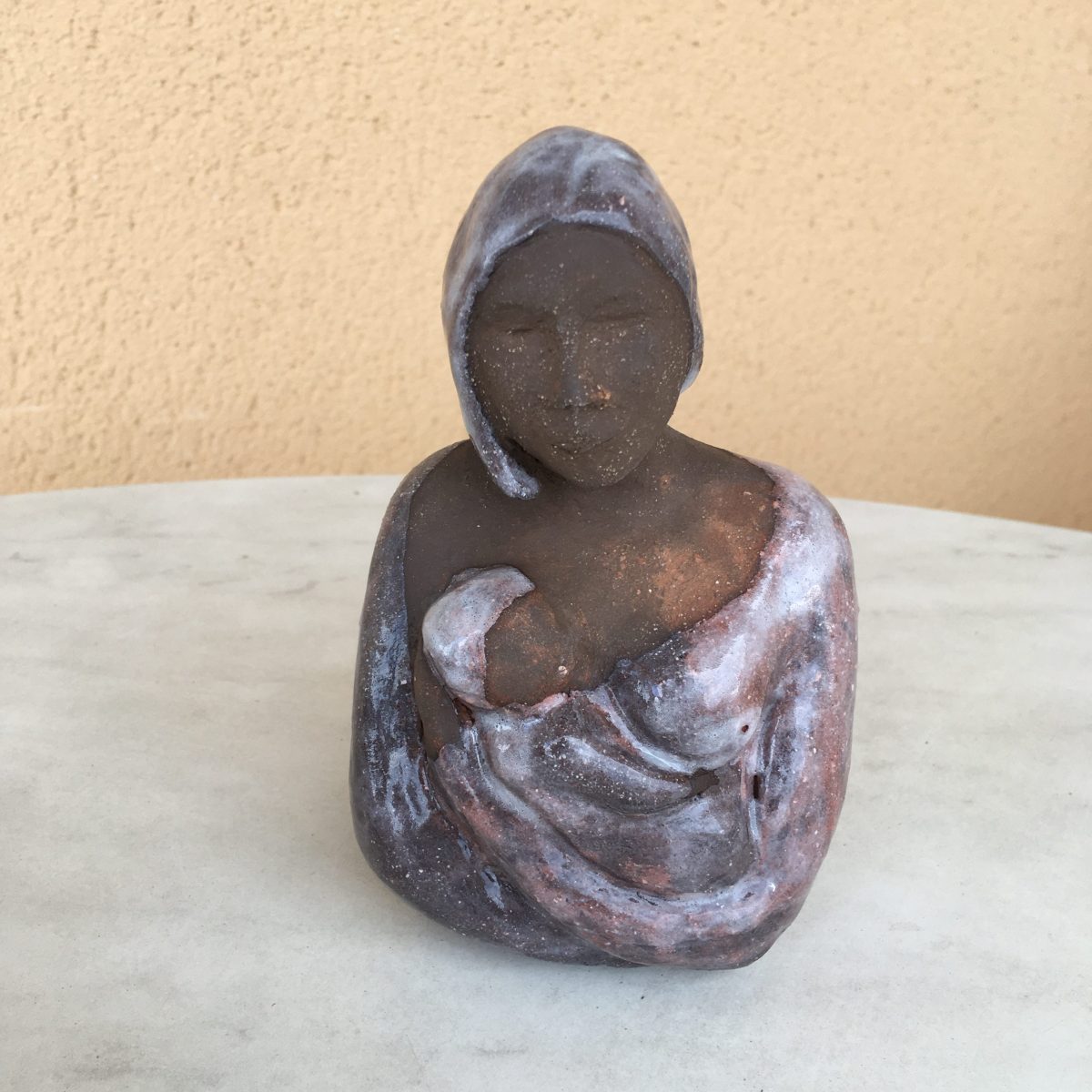I used to think professional musicians, artists and writers were the epitome of creative success. They’d bypassed nine-to-five monotony and were travelling the world, being recognised for, and making a living from, their craft.
Twenty years on, I’ve started noticing different kinds of artists, a different kind of success: friends with “normal” jobs and “normal” lives who are still driven to create. Their ages mean they’re past their so-called prime; their circumstances mean it’s hard to find the time. They may never “make it” in the sense of fame and fortune, and they’re well aware of this – but they’re making anyway.

Since turning 40 a couple of years ago, Megan Tudehope, who lives in Hobart and works full-time in a corporate communications role, has drafted a novel. She’s always had a way with words, but never considered herself creative – or disciplined. Now, at 5am, while her husband and two children sleep, she writes.
‘And when the kids wake up, I close my computer and I go about my day… I walk to work, and I think about my novel; and I walk home from work, and I think about my novel. And then I deal with the fuss of the kids and dinner and bed and reading… And then I go to bed, and I get up, and do it all again.’
Pryderi Jones, 39, lives in Hobart, too. He works at a call centre for an electricity company. Jones doesn’t think of himself as a musician, but, ‘in bits and pieces throughout many days’, he’s been writing songs for years.
Now, when he arrives home before his wife and daughter, he may record a track or two. ‘Even if they’re on the way home, I know I’ve got 20 minutes… so I’ll just plug in the mic and see if I can get something down.’ Twenty minutes here and there adds up. This year, he released his first solo album.

Beres Jackson, 41 this year, has released a few albums over the years. As a kid, he played in a youth orchestra. In his 20s he was “unearthed” by Triple J, performed all over Sydney, and dreamed of being a full-time musician. But, as he approached 30, he saw that pursuing music as a career was more likely to involve hustle, compromise and sacrifice than fame and riches.
Now Jackson lives in Berlin with his girlfriend and works for a non-profit organisation that ensures copyright holders in the music industry get their dues. The role involves lots of spreadsheets and little creativity. During the pandemic, he barely strummed a guitar. But he’s since started renting a shared studio. Now he goes there twice a week, to play.
‘[It’s] the perfect balance,’ Jackson says. And working on his own, without an audience or anyone to please, has been liberating. Now he’ll experiment with anything and everything. ‘I think I’m beginning to understand that that’s what you do when you’re trying to free yourself… The irony is, it leads to much more creative, interesting stuff, because you become a better musician from it.’

Meanwhile in France, 42-year-old Sylvie Marion spends her mornings assisting students and updating catalogues for a library near Versailles, and her afternoons turning lumps of clay into works of art. She also writes; she’s made a podcast too.
Perhaps, if Marion’s job demanded more creativity, if she found it more fulfilling, she’d have less creative energy for herself. ‘If you really like your job, you put an energy you like into it, and I wonder if you still have energy besides,’ she says.
There’s also a benefit in having limited time to sculpt – it forces her to take a break. ‘Sometimes I want to finish [but] the day after I see directly what’s wrong with it, and what to change… That’s a comparison between the writing and the sculpture: at some point you want to keep doing it, but you need a break… a fresh eye.’
Marion’s been offered payment for her sculptures, but is yet to want to part with them, let alone accept commissions. And, thanks to the library, she doesn’t have to.
‘Even if it’s a dream to live on your art, I think it’s very hard and there’s a different pressure, because your salary would depend on your work, and you need to produce a lot,’ she says. There’s also the need to produce with the market in mind, and to market yourself. ‘It takes some pleasure out of what you do, because you don’t do it only for yourself,’ adds Marion.

Tudehope is writing for her own satisfaction, but also in the hope she will be published. She had the idea for her novel in her early 20s, but until recently assumed that being “terrible at art” meant she’d be terrible at all “creative stuff”.
‘I just separated those two: either you’re good at the serious stuff, or you’re good at the creative stuff,’ she says. As a result she pursued a “serious” career – first journalism, then politics, now corporate communications.
When she turned 40, she realised that if she didn’t at least give the novel a go, she’d regret it. ‘It was time to – what do they say? – p**s or get off the pot.’
Learning to write a novel while writing a novel hasn’t been easy. About 30,000 words in, she realised she was just writing a series of disconnected scenes. She ‘chucked’ about 60% out and started again. She’s on her sixth draft now and, while the premise is the same, the story ‘is really evolving, and it’s getting better and better and better as I learn,’ she says.
Jones never set out to be a musician. ‘I just enjoyed it,’ he says of how, in his share house days, he’d retreat to his room to strum and sing, and how, over the years, he developed those songs and wrote more. When he first started thinking about putting an album together, he imagined getting help.
‘I think even when I started recording, I thought at some point I’d bring in someone else. Maybe I thought I’d send off the tracks to be properly mastered or something like that. But I’d come so far, doing it on my own… It dawned on me … maybe the hard part is actually writing the song.”
Success stories are often told in a way that implies there are only two choices – to follow the dream at any cost or give it up altogether – but such a view dismisses countless other possibilities.
Read: Tips for launching your creative career
‘I think we forget you can just be a musician who has a craft, and you can be really good at it, and you can share that in many different ways, without having to subscribe to that very narrow construct of success,’ says Jackson. He also released an album this year. Maybe people will buy it, maybe they won’t. It will be nice if they do, but if they don’t he won’t despair. As with Tudehope, Marion and Jones, he has a job to pay the bills. This labour is for love.
Read more from Emma Wilkins.





